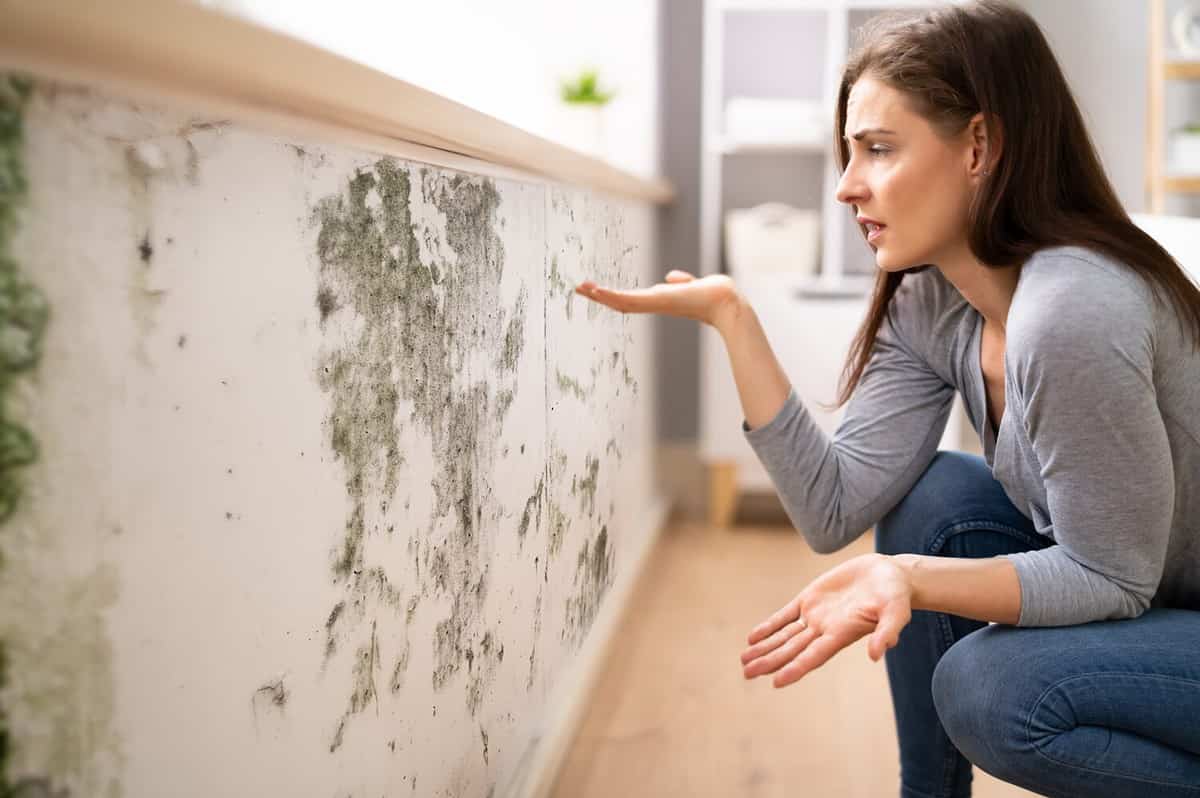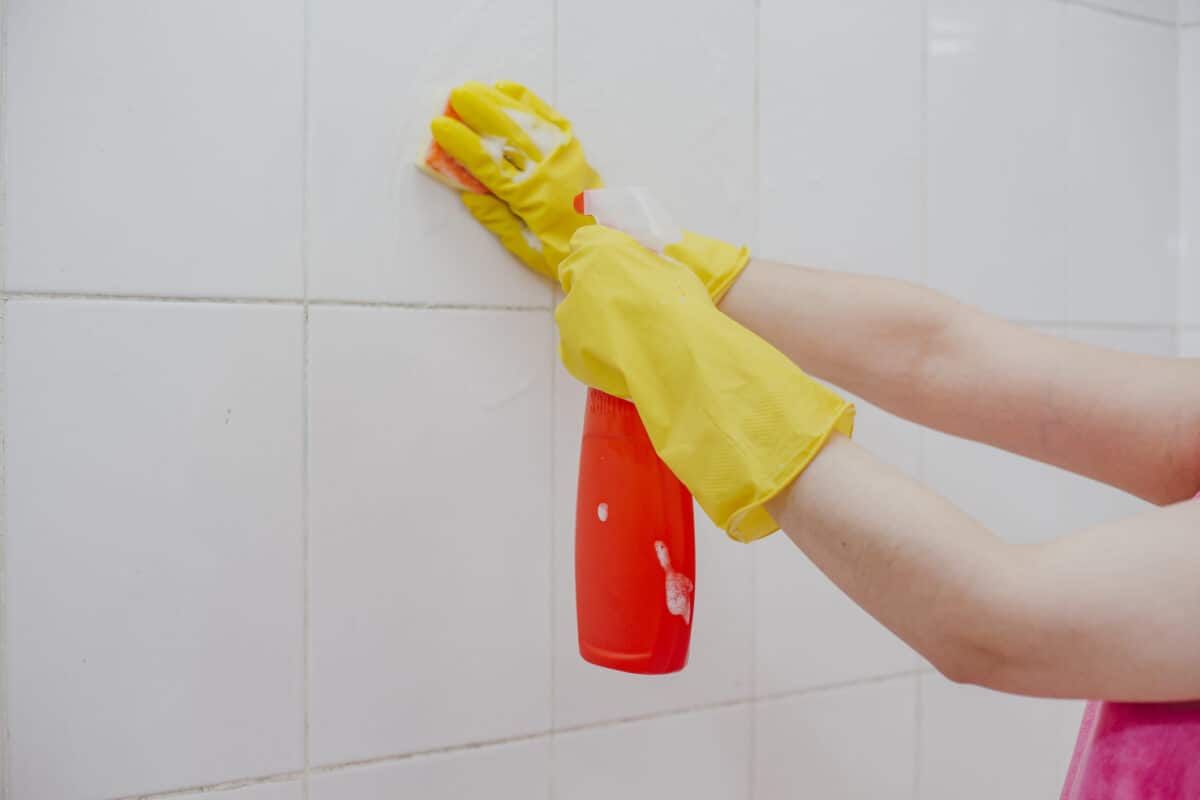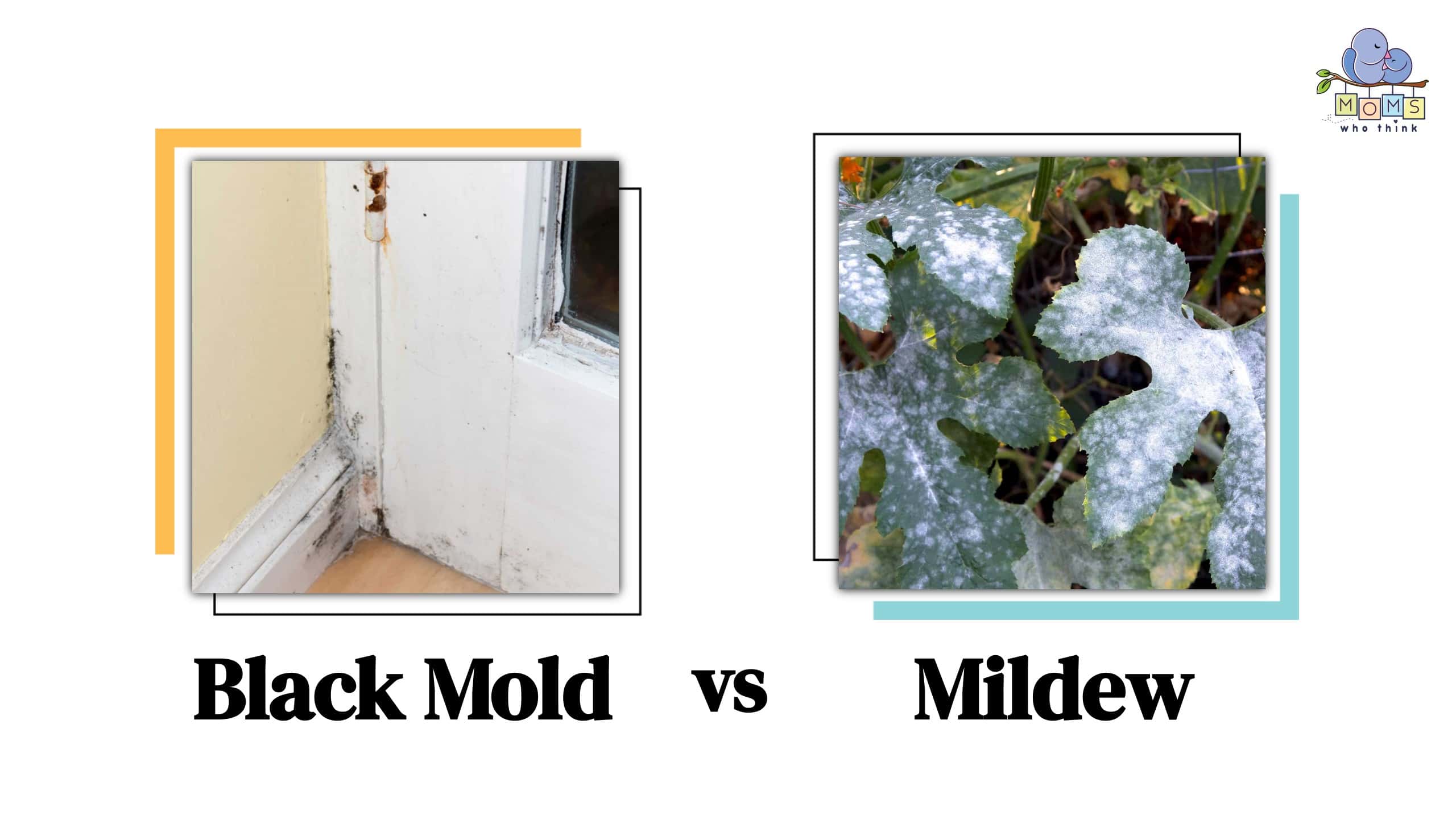When it comes to issues you’d like to avoid in your home, mold often makes the top of the list. Mildew is another common concern, but it’s easier to get rid of and therefore less concerning. However, if you notice one of the two growing in your home, you might wonder about the difference between black mold vs. mildew.
While both black mold and mildew are fungi that grow because of excessive moisture, the main difference is their appearance and treatment. Mildew is often flat and powdery while mold can be green, red, or black, and is often textured or fuzzy. They can both cause health concerns but mildew is much easier to get rid of.
Whether you’re dealing with mold or mildew, you need to know how to get rid of it. Keep reading to find out how to spot the differences and keep your family safe.
- The must-have convenient reference guide for every home cook!
- Includes more than 8,000 substitutions for ingredients, cookware, and techniques.
- Save time and money on by avoiding trips to grab that "missing" ingredient you don't really need.

©Andrey_Popov/Shutterstock.com
Black Mold vs. Mildew: What Is the Difference?
There are plenty of pesky things you have to deal with as a homeowner or renter. Mold and mildew are definitely two of the most concerning. No matter how hard you try to keep your home clean and free of moisture, you can still end up with mold or mildew, especially in the bathroom or attic.
What mold and mildew have in common is they’re both types of fungi. Despite this similarity, there are also many differences between them and it’s important to know the difference if you notice one growing in your home. Mold and mildew are both caused by excessive moisture. This is why they’re commonly found in areas such as bathrooms, crawl spaces, or around AC vents.
One of the most significant differences between them is their appearance. While mildew can be white or gray as it grows, it often turns brown later on. It’s also flat and looks like powder. Black mold, on the other hand, is green, red, or black, and is often confused for dirt. However, compared to mildew, it can also come in darker shades or be more textured. The texture of mold is often described as fuzzy.
One of the other main differences between them is how easy they are to get rid of and how you get rid of them. While you definitely don’t want mold or mildew in your home, mold is more difficult to get rid of and can be more concerning when it comes to health effects.
What Is Black Mold?
If there’s one word no homeowner wants to hear, it’s mold. Black mold is a fungus that grows in places with high amounts of moisture. There are different types of mold and most of the time, it appears as green, red, or black.
Like most fungi, black mold needs moisture to grow, which is why it’s commonly found in moist areas like bathrooms, on AC vents, or in attics. Mold is actually a natural part of the environment. These fungi are known for decomposing dead plants, animals, and other organic material. However, it’s not something you want to find in your home.
Even if you don’t have mold, there are likely mold spores floating around your home. However, the spores aren’t a problem until they start to grow, typically in a high-moisture area.
Is Black Mold the Same as Toxic Mold?
While any mold can make someone sick, especially if they have a mold allergy, not all black mold is toxic mold. Black toxic mold is a specific type of mold known as Stachybotrys chartarum and is highly toxic if consumed.
While this type of mold is known as a mycotoxin, there isn’t necessarily a long-term risk if this type of mold is inhaled unless you have a specific allergy or a compromised immune system. Toxic black mold is often found in attic spaces and other areas that have flooding or excessive moisture.
You can usually tell that it's a toxic black mold by its appearance and smell. Toxic mold is usually green, gray, or black and has a furrier appearance than other types of mold. You’ll also notice it has a particularly bad smell and that it’s difficult to clean or get rid of.
- The must-have convenient reference guide for every home cook!
- Includes more than 8,000 substitutions for ingredients, cookware, and techniques.
- Save time and money on by avoiding trips to grab that "missing" ingredient you don't really need.
What Is Mildew?
Like mold, mildew is also a form of fungus that grows in areas with consistent moisture. It also can lead to some health issues with long-term exposure. However, there are numerous differences between mildew and mold.
Mildew often appears as white or gray and is flat. It’s much easier to clean than mold and you can usually treat it with a brush or sponge and store-bought cleaning solution. While mildew is a specific type of mold, the term mold itself usually includes all the various types.
If you do identify mildew in your home, it’s relatively easy to get rid of and the best way to prevent it is to identify where the moisture is coming from and to clean the mildew right away.
Health Concerns with Black Mold and Mildew
When it comes to finding black mold and mildew in your home, the question many have is whether or not it can make you sick. Mold and mildew can both lead to health issues at times as well as potential structural damage to your home.
Keep in mind that mold and mildew may not impact everyone, but there are certainly some risk factors that make someone more likely to be impacted. The people most at risk are those who are elderly or immunocompromised. Additionally, those who have significant allergies or a specific allergy to mold or mildew are most likely to be affected. Since the health impacts of mold and mildew often include respiratory issues, they also may impact those with issues like asthma more than others. Let’s take a look at the potential health issues caused by these types of fungi.
Health Effects of Mildew
While mildew can lead to some health concerns, it’s not as concerning as the effects related to other types of mold. Most of the time, if mildew does lead to any concerns it may cause minor respiratory issues. This is especially true for those who are specifically allergic to it or have other respiratory issues like asthma.
Health Effects of Mold
Black mold can cause much more severe health risks. This is especially true of certain types like toxic black mold, which is toxic if ingested. Exposure to mold can lead to allergic reactions or lung inflammation. Like mildew, this is especially true when there’s already a mold allergy present. If someone is sensitive to mold, it can lead to itchy eyes, congestion, or trouble breathing. Those with compromised immune systems are also susceptible to the impact of mold exposure.

©iStock.com/golibtolibov
Preventing Mold and Mildew
While you may not be able to prevent moisture in your home at all times, there are ways to keep your home safe from mold and mildew. To prevent mold and mildew from growing, you can:
- Keep your home as clean as possible
- Use dehumidifiers, especially in rooms with excessive moisture
- Keep vents open and unblocked
- Deal with any leaks right away
- Clean your vents regularly
If you do find mold or mildew in your home, it’s essential to know how to treat them and when you may need to call a professional. Consider the following:
- Does the mold cover a large area?
- Did the mold grow back after cleaning it?
- Are there high levels of humidity in your home?
- Is anyone in your family experiencing consistent respiratory issues?
- Is the mold slimy and black or green?
- Does the mold have a significant odor?
If you did answer yes to most of these questions, you might have toxic mold or a significant mold issue. Especially if members of your family seem to be affected, you may need to call a mold remediation specialist.
Protecting Your Home and Family: Black Mold vs Mildew
Having mold or mildew in your home is a significant concern for the health of your family. While there are differences between mold and mildew, it can sometimes be difficult to tell them apart.
The main differences between mildew and mold are their appearance and health effects. If you’re not sure which you have in your home, check what color it is and if necessary, hire a professional to intervene, especially if you notice an impact on your family.

